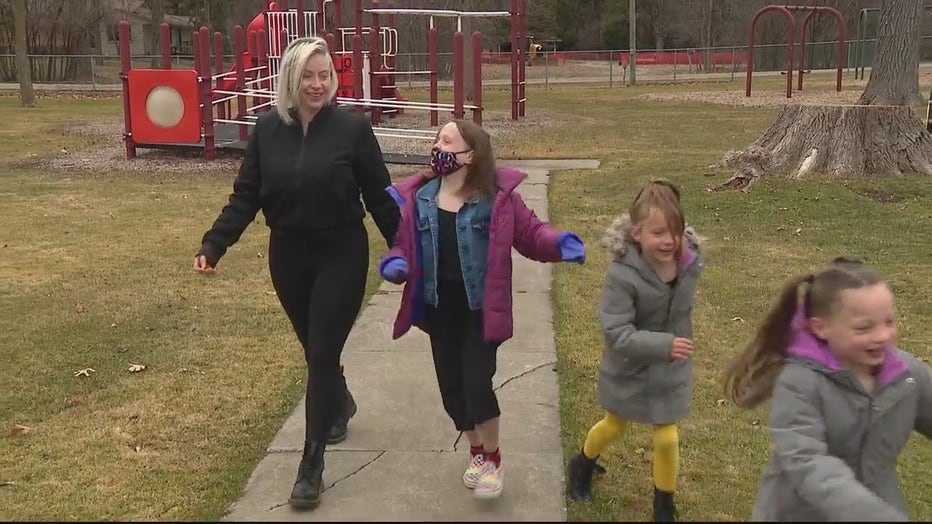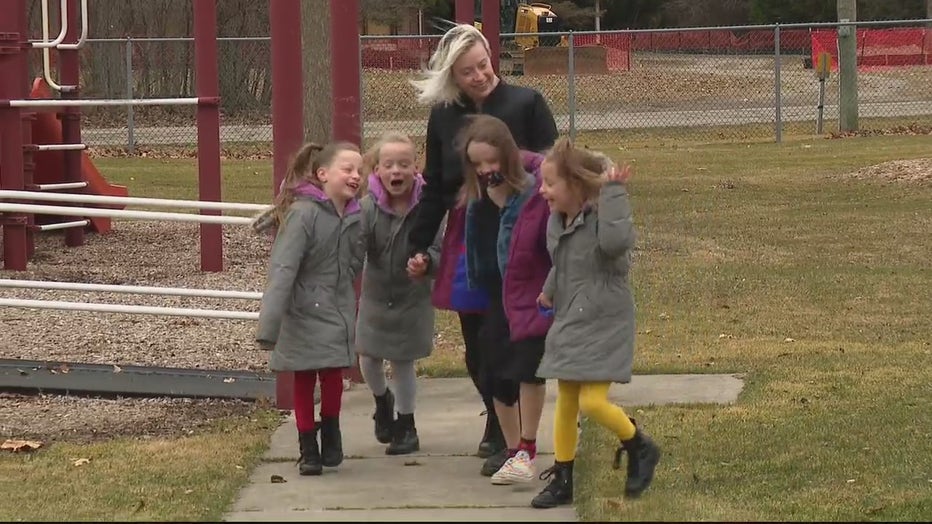Ending the stigma: How the media can change the way substance use recovery is portrayed
How to change the way substance use disorder is portrayed in the media
The way substance use disorder and recovery is portrayed in the media can be stigmatizing and triggering for people who are recovering.
DETROIT (FOX 2) - Bree Rowe is a mother of four who is in recovery from substance use disorder.
"I’ve been sober a little over seven years now. I got sober on December 25th of 2013. Prior to that, I had my four daughters," she said. "I was a heroin addict. I struggled with substance abuse disorder for five or six years before having my children."
Rowe added that the problems she was having don’t just go away when you have kids, and there was still work to be done. She got the resources she needed and began healing.
She is now married, has custody of her children, and has a new house.

Bree Rowe plays with her four children.
While she is in recovery, Rowe said there is something that isn't helpful for her -- what is shown by the media every time a story is aired about recovery.
"All the pictures are portrayed in negative images, needles and different things that put people in a light of not being worth saving, the dehumanizing nature of it," she said.
Rowe said her children see the images she is seeing on TV.
"That’s what they’re seeing and that’s not what they know their mom to be. They know that their mom was worth saving. They know that their mom was worth getting the resources They know that their mom is a happy, healthy person outside of mental health and substance use disorder," she said.

Bree Rowe said the images she and her children see on the news are stigmatizing.
David Clayton, with Families Against Narcotics, described the way stigmatizing photos can turn a good story bad.
"The media will cover positive stories about substance abuse disorder, about these great programs we are doing with Families Against Narcotics and then they’ll cut to a needle and a spoon or a needle going into an arm or pills slowly falling out of a pill bottle," he said.
RELATED: Families Against Narcotics, Madison Heights police team up to provide help after drug overdoses
These images are stigmatizing and triggering to people in recovery.
Clayton is on a mission to change how the media portrays stories of recovery.
"When we talk about, you know, untreated mental illness or suicide prevention, we're not showing nooses, we’re not showing guns. When we’re talking about diabetes, we’re not showing someone stuffing their face with unhealthy food," he said. "But for some reason, when we talk about substance use disorder, this is what we show."
Clayton is challenging the media to end the stigma associated with substance use and recovery by avoiding using images that paint people in a negative light.

